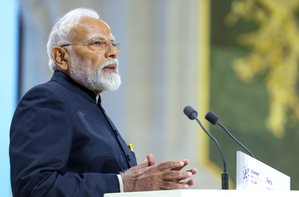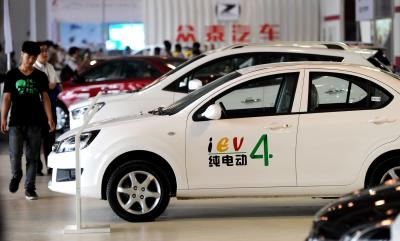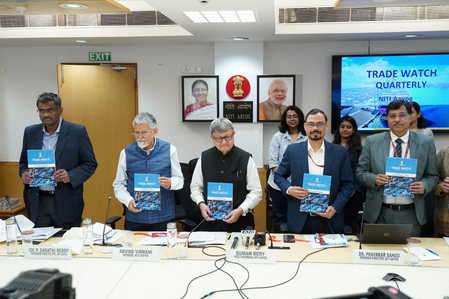
New Delhi, March 7 (IANS) The government has invested about Rs 20 lakh crores in the power sector during the last 9 years and another Rs 17 lakh crores will be invested in the next 5 to 7 years, Union Minister for Power and New & Renewable Energy R. K. Singh said on Thursday.
Speaking at a media event here, the minister said that the fast growth of the power sector is creating demand and the government wants that demand to be met by ‘Made in India’, for which the manufacturing capacity required is huge.
“We have already put in place policy instruments, such as a tariff barrier of 40 per cent on solar modules, and a barrier of 25 per cent on cells, so that industry is protected. We have put quality barriers so that externally manufactured equipment takes time to qualify. Today, our module manufacturing capacity has gone up from 20 GW to 50 GW, and cell manufacturing capacity from 2 GW to around 12 – 13 GW,” the Power Minister R. K. Singh said.
He said that in the last 10 years, the government has added 190 GW of power generation capacity, increasing it to around 436 GW, nearly doubling it.
“This required a lot of thermal and renewable equipment. We added 200,000 circuit kilometres to transmission lines; our transmission system today is the largest integrated transmission system in the world,” the Power Minister R. K. Singh said.
“We can transfer 116 GW from one corner of the country to another. During my tenure, we spent about Rs 2 lakh crores in constructing about 3,000 new substations, upgrading about 4,000 substations, adding 8.5 lakh circuit kilometres of HT and LT lines and 7.5 lakh transformers,” he pointed out.
The Power Minister said that the expansion is going on in the power sector and we need to double the size by 2030, given the quantum of power we need.
“The power demand grew by 60 per cent from 2013-14, it grew by 9 per cent last year, but we were able to meet it due to the expansion and upgradation in infrastructure. We are adding about 85 GW of thermal capacity and have 14 GW of hydro under construction. Another 14-15 GW of hydro capacity is under clearances,” the Power Minister R. K. Singh said.
He exhorted the Indian manufacturing industry to embrace the challenge of being able to compete globally, to make in India not only for India but for the world.
The Minister recalled that the viability of discoms was an issue which earlier stood in the way of the addition of power capacity.
“Earlier, we had about 60 GW under NCLT, but today, all power sector companies have doubled or tripled their share prices, and their market caps have gone up 3-4 times, indicating how viable they have become,” the Power Minister R. K. Singh added.
He said that the Indian industry needs to look around to compete in external markets and be able to export.
“The quality of products needs to be so good that they should be able to compete globally and their prices need to be reasonable. You have to compete and the people are not going to suffer while you give them outdated or bad-quality equipment or high prices,” the Power Minister R. K. Singh said.
The Union Minister added that the government is also open to people coming and setting up industry in India. “We want manufacturing to come here. The world is looking at China plus one and we want to be that one,” the Power Minister R. K. Singh said.
He pointed out that the nation is going to add thermal capacity since we are not going to compromise on the availability of power for growth.
He said that energy security is the number one priority, and energy transition is number two, though we are a world leader in energy transition already.
“Our per capita emissions are already one-third of the global average. We are the only major economy which has achieved both its NDCs well ahead of time.”
“There was a time when I felt we had surplus power capacity. But when the economy started expanding, the demand started increasing and the government decided to add further capacity,” the minister said.
–IANS
sps/dan




